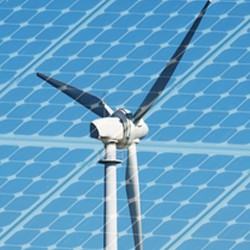Hello all
The OECD’s report on the global environment to 2050 (available to buy or read online free at http://www.oecd.org/document/
Andrew, please explain the relevance of Professor Ivar Giaever’s views. He is 82, so retired, and his publication record is on electron tunnelling and electric cell-substrate impedance testing among other things (the Earth’s climate not very high in that list, methinks). If you have a spare minute, perhaps you can produce a list for us of the last 100 old professors who rejected the plate tectonic theory? If he (or anyone else) is going to engage in scientific debate, they need a) an argument and b) evidence for that argument. Writers in the Telegraph throwing in adjectives such as the ‘growing’ controversy among ‘increasing numbers’ of ‘increasingly sceptical’ scientists at the ‘alarmist’ and ‘controversial’ anthropogenic climate change theory doesn’t cut it. I also notice he works for the Heartland Institute and an article defending him which comes up when you search his name was written by a fellow at the Cato Institute. So at least we can rest happy that the theory that American right-wing think tanks and the Telegraph form a self-reinforcing echo-chamber is neither alarmist nor controversial.
I do however share your view that nuclear power is up a creek without a paddle in the Western world. I suppose the question is: ‘How will China react when they have their first serious nuclear accident?’ CCS, I think, will fall prey to the fact that nobody can guarantee what will happen to underground CO2 stores in the very long term – similar to the total failure of the US Yucca Mountain nuclear waste store. It’s a matter of liability and insurance for unknown costs including potential catastrophes, rather than strict risk management, as both nuclear waste and CO2 are probably better off deep underground than on the surface in temporary stores or in the atmosphere.
All the best
Ed Sears
I have no special knowledge of CCS
I believe Hugh Sharman does (CO2 EOR in North Sea) but I dont know if he wants to share views on it
I already said what I think should be done with ETS. The main so-called “scientific” pillar of ETS is that AGW is real and dangerous.
How do we dismiss Ivar Giaever who was one of more 100 scientists who wrote an open letter to Obama declaring: “We maintain that the case for alarm regarding climate change is grossly overstated.”
Giaever is very far from being an idiot
Andrew McKillop

